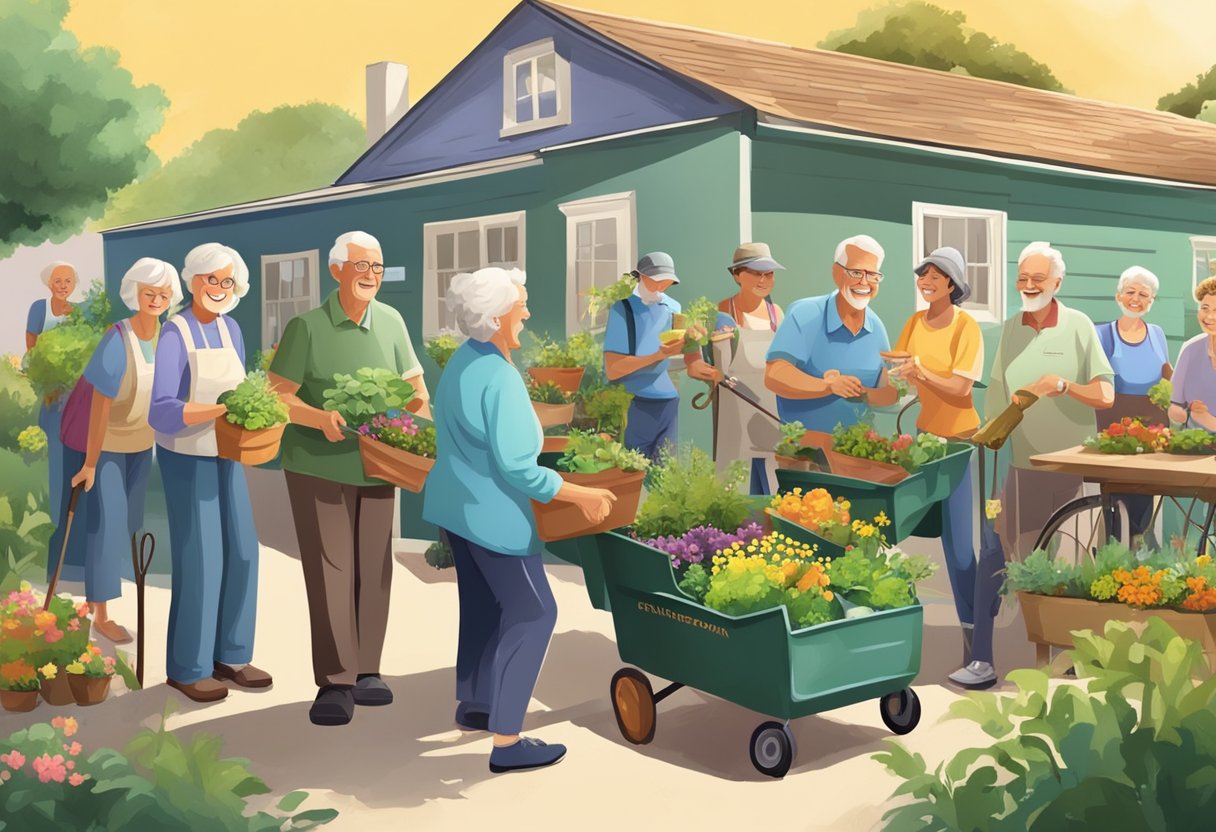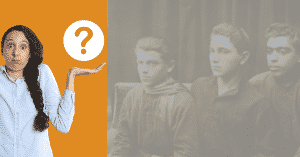By engaging in volunteer activities, retired individuals can explore new areas of interest, forge meaningful connections with others, and even develop new skills. The benefits extend beyond personal growth, as volunteering fosters tighter-knit communities and contributes to the greater good. In short, volunteering in retirement is a win-win situation, enhancing the quality of life for both volunteers and their communities.
Key Takeaways
- Volunteering in retirement offers the opportunity to rediscover purpose and contribute to the greater good
- Engaging in volunteer work can lead to positive health effects and stronger community connections
- Retirement is an ideal time to explore diverse volunteer opportunities and give back to society
Rediscovering Purpose Through Volunteering
Finding Fulfillment in Retirement
Retirement can be a significant shift in your life as you move away from the 9-to-5 grind. One way to find fulfillment and a renewed sense of purpose during this stage is by volunteering and giving back to your community 1. Not only does volunteering provide you with an opportunity to contribute your skills and expertise, but it can also bring joy and numerous benefits in your retired life.
Developing a sense of purpose is crucial to achieving mental and emotional well-being in retirement. By engaging in volunteering, you will be able to build social connections with like-minded people and feel a part of something bigger2. This involvement can help reduce feelings of isolation and depression often associated with retirement.
Here are some of the key benefits of volunteering during retirement:
- Building new connections and friendships: Volunteering allows you to connect with others who share similar passions, fostering new relationships and support networks3.
- Developing essential life skills: As a volunteer, you can develop skills such as empathy, patience, and active listening, which are valuable throughout your life4.
- Promoting mental and physical health: Engaging in volunteer activities has been shown to decrease the risk of depression, contribute to staying physically and mentally active, and reduce stress levels5.
To make your volunteering experience more fulfilling and impactful, consider the following suggestions:
- Identify your interests and skills: Find volunteer opportunities that align with your passions and utilize your unique strengths.
- Commit to a regular schedule: Even as little as two hours a week of volunteering can provide significant benefits5.
By embracing volunteering as part of your retirement, you can experience joy, personal growth, and a greater sense of purpose in life. Explore available opportunities in your community and take the first steps toward a more rewarding, purposeful retirement.
The Positive Impact on Health
Physical and Mental Benefits
Volunteering in retirement can have a profound impact on your overall health and well-being. By participating in activities that are both physically and mentally engaging, you’re likely to experience a variety of benefits. For instance, staying active through volunteering can help increase your mental health and resilience, which in turn reduces your risk of depression and anxiety.
Moreover, engaging in meaningful work can boost your sense of self-worth and purpose, contributing to a greater sense of satisfaction in your life. When engaged in acts of kindness and support, your brain releases dopamine, a neurotransmitter associated with feelings of pleasure and satisfaction, which can further enhance your mental well-being.
Physical benefits of volunteering may include improved cardiovascular health, increased muscle strength, and better balance, depending on the activities you engage in. For example, volunteering opportunities that require physical activity, such as walking dogs or maintaining a community garden, can help you stay fit and healthy.
Preventing Health Concerns
By maintaining an active lifestyle through volunteering, you’re taking positive steps toward preventing various health concerns that can affect retirees. One of the major perks of staying engaged in social activities is the potential reduction in stress levels. By spending time in service to others, you can experience a sense of meaning and appreciation, both given and received, which contributes to lowered stress.
In addition to reducing stress, volunteering has been associated with a lower prevalence of dementia and cognitive decline. This can be attributed to the mental and social stimulation that many volunteering opportunities provide. In fact, research shows that older adults who engage in volunteering experience improved health and well-being outcomes compared to non-volunteers.
Embracing a volunteer role in retirement can also help combat isolation and loneliness, which are common concerns for retirees. By connecting with others who share your passions and interests, you’ll form meaningful relationships and build a strong support network, ensuring a happier and healthier retirement.
Don’t underestimate the power of giving back to your community and staying socially engaged. Volunteering can positively impact your physical, mental, and emotional well-being, making it an essential component of a fulfilling and joyful retirement.
Connecting and Reconnecting in Communities
Maintaining Social Connections
Volunteering in retirement provides numerous benefits, one of which is maintaining and enhancing your social connections. By engaging in community service, you have the chance to interact with individuals who share similar passions, fostering meaningful friendships and connections. This can prove valuable in avoiding isolation and loneliness, which can be detrimental especially for retirees.
You can consider volunteering at local organizations like schools, hospitals, and non-profit groups within your neighborhood. By doing so, you not only strengthen your social ties but also contribute positively to the enhancement of your community.
Bridging the Gap: Intergenerational Bond
Another important aspect of volunteering in retirement is the opportunity to create an intergenerational bond, by connecting with people of different age groups. For instance, working with children in schools, tutoring, or mentoring programs can help bridge the generation gap by sharing your life experiences and gaining insights from younger generations.
Here are a few ways to take part in activities involving different age groups:
- Intergenerational mentoring: Offer to teach a skill, share a hobby, or provide guidance to children, teenagers, or young adults.
- Volunteering at schools: Participate in after-school programs, reading initiatives, or support clubs and extracurricular activities.
- Supporting community events: Assist in the organization of neighborhood gatherings, cultural festivals, or sports events.
These activities not only foster a sense of connection and belonging but also enable you to play a vital role in shaping the future of your community. Volunteering in retirement brings joy and fulfillment, allowing you to serve others while enhancing your own well-being and maintaining social connections.
Exploring Volunteer Opportunities
Local to Global Causes
When you decide to volunteer during your retirement, you have the chance to be involved in various causes, ranging from local to global. It is essential to identify the cause or causes that resonate with your passions and values. This could include supporting your community by working with local organizations, such as food banks, shelters, or schools. Alternatively, you may choose to contribute to global causes, like environmental conservation, disaster relief, or international charities. Remember, volunteering allows you to make a positive impact not only in your community but also across the globe.
Finding the Right Fit
Before embarking on your volunteer journey, take some time to evaluate and research the different types of volunteer opportunities available. Keep in mind your interests, skills, and how much time you can commit to volunteer work. Here are a few steps to help you find the perfect fit:
- Make a list of your passions, skills, and experiences: This will help you identify the types of organizations and volunteer activities that align with your strengths and interests.
- Research organizations: Look for local or global non-profits, charities, or community groups that focus on the causes you care about. Check their websites for volunteer opportunities and requirements. The Unleash the Joy of Giving article has more information to help guide you.
- Discuss your availability: When you find a potential organization, have an open conversation with the coordinators about how much time you can commit to volunteering. Make sure to be honest about your availability to avoid overcommitting and ensure a positive experience.
- Shadow existing volunteers: If possible, spend a day with someone already volunteering in the organization. This will give you a first-hand experience of the volunteer work and help you determine if it’s a good fit for your preferences and abilities.
By following these steps and considering both local and global causes, you’ll be well on your way to finding the perfect volunteer opportunities to bring joy and fulfillment to your retirement years. Remember to stay open to exploring different opportunities and organizations, and most importantly, have fun while making a difference!
Utilizing and Mastering Skills

Mentoring and Tutoring
As a retiree, you have a wealth of knowledge and experience to share. Mentoring and tutoring are great ways to utilize your skills while making a difference in the lives of others. By becoming a mentor or tutor, you can contribute to the education and personal growth of individuals in your community.
One option is to volunteer at local schools, where you can share your expertise in subjects like math, science, or languages with students who need extra support. Alternatively, you may choose to mentor young adults in their career paths, providing guidance and encouragement as they navigate the professional world. Regardless of the setting, your expertise and wisdom can have a significant impact on those you mentor or tutor.
Unleashing Hidden Passions
Retirement is the perfect time to explore your hidden passions or talents that you may have overlooked during your working years. Volunteering provides an excellent opportunity to discover and cultivate these interests while also helping others in need. For instance, you might have a passion for art or music that can be channeled into teaching classes or workshops at local community centers. Likewise, your love for gardening could lead to working with environmental organizations to create sustainable community gardens.
Consider the following steps to leverage your skills and discover your hidden passions:
- Reflect on your interests and talents: Make a list of your hobbies, skills, and experiences that you believe would benefit others.
- Research volunteer opportunities: Look for organizations that align with your passions and match your skills with their needs.
- Start small and test the waters: Try out different volunteer roles to find the ones that truly spark your passion and allow you to grow.
By volunteering in your retirement, you not only enrich the lives of others, but you also have the chance to develop new skills, pursue your passions, and build lasting friendships. Remember, the most important thing is to stay open-minded, engaged, and curious as you embark on this exciting new chapter in your life.
Giving Back: An Integral Part of Retirement

Boosting Emotional Well-Being
Volunteering in retirement can have a significant impact on your emotional well-being. When you give back to your community or a cause you care about, it generates a sense of happiness and satisfaction. This is because helping others releases endorphins in your brain, creating a “helper’s high” that improves your overall mood. Studies have shown that volunteering can reduce feelings of isolation and depression in retirees, promoting an overall sense of mental health and happiness.
In addition to the emotional benefits, volunteering provides a wonderful opportunity to make new friends and foster social connections. When you volunteer, you’re likely to meet people who share similar values and interests, leading to meaningful relationships that enrich your retirement years further. These social connections can help combat loneliness and boost your self-esteem.
Sharing Values and Passion
As you volunteer in retirement, you have the chance to impart your own values and share your passions with others. You may find it fulfilling to work with an organization that aligns with your personal beliefs or interests, such as environmental conservation, education, or helping the less fortunate.
By giving back, you not only make a positive impact on the lives of others, but also reinforce your own values, creating a deeper sense of purpose and accomplishment. For example, volunteering at a local school can allow you to share your knowledge and skills with the next generation, while nurturing important life skills such as empathy, patience, and active listening in yourself.
In summary, incorporating volunteering into your retirement helps improve your emotional well-being, build social connections, and allows you to share your passions and values with others. By giving back, you can enrich your retirement experience and make a positive difference in the world around you.
Overcoming Challenges in Volunteering
Time and Transportation
One common challenge you may encounter when volunteering in retirement is managing your time commitment. It’s important to set realistic expectations for yourself, considering the amount of free time you have available. If you’re unsure about the frequency or duration of your commitment, you might consider starting with a trial period to determine what works best for you and the organization. Additionally, consider creating a schedule to maintain a healthy balance between volunteering and other activities in your life.
In terms of transportation, volunteering opportunities may not always be near your home. Public transportation, carpooling with other volunteers, or using ride-sharing services can help you overcome this obstacle. Reach out to the organization to inquire if they could help arrange transportation or provide suggestions for the best means to get to the location. This way, you can ensure your commitment to your chosen cause without worrying about transportation limitations.
Health and Aging Constraints
As you age, you might experience certain health limitations that could impact your ability to volunteer. It’s essential to acknowledge your physical and cognitive abilities while choosing a suitable volunteer opportunity. Do not hesitate to communicate your needs and preferences to the organization. They may be able to offer tasks or roles tailored to your capabilities, allowing you to contribute positively without causing any harm to your health.
To maintain a healthy and enjoyable volunteering experience, consider the following tips:
- Choose a suitable activity: Select volunteer opportunities that align with your skills, interests, and physical limitations. This could include less strenuous tasks, such as office work, mentoring, or hosting fundraising events.
- Stay within your comfort zone: It’s essential to know your limits and avoid overextending yourself. Remember, the purpose of volunteering is to give back and find joy in retirement while staying within your physical and mental capabilities.
- Listen to your body: If you experience any discomfort or health concerns while volunteering, do not hesitate to inform the organization and take the necessary steps to prioritize your well-being.
By addressing these common challenges faced in volunteering, you can make the most of your retirement and find purpose and joy in giving back to your community.
Frequently Asked Questions
How does volunteering improve mental and physical well-being in retirees?
Volunteering in retirement can lead to various mental and physical health benefits. Engaging in meaningful activities can improve cognitive function, lower levels of stress, and potentially reduce the risk of chronic illnesses. Social interactions and physical activities while volunteering can enhance mood and overall well-being, making you feel more fulfilled and satisfied with your post-retirement life.
What are the top reasons seniors choose to volunteer in their retirement?
Seniors choose to volunteer in retirement for a variety of reasons. These may include:
- Pursuing personal interests or passions
- Developing new skills and learning
- Staying mentally and physically active
- Creating social connections and friendships
- Improving self-esteem and sense of purpose
- Giving back to the community or making a difference in other people’s lives
How do retired volunteers contribute significantly to local communities?
Retired volunteers bring invaluable experience, skills, and knowledge to local communities. They can mentor and guide younger individuals, participate in community development projects, or share their expertise in various fields. By dedicating their time and energy to help others, retired volunteers contribute to the betterment of society and foster a sense of unity and cooperation.
What types of volunteer opportunities are available to people in retirement?
There are numerous volunteer opportunities available for people in retirement, ranging from short-term to long-term commitments. Some options include:
- Mentoring or tutoring students
- Helping in local schools, hospitals, or shelters
- Participating in community events and projects
- Working with nonprofit organizations
- Assisting in environmental or conservation initiatives
Find the right opportunity based on your interests and skills.
How can volunteering in retirement help build a sense of purpose and community?
Volunteering allows retirees to be part of something larger than themselves. By working with others, collaborating on projects, and assisting those in need, one can develop a sense of purpose and a feeling of belonging to the community. This can lead to increased social connections, improved psychological well-being, and overall satisfaction with life during retirement.
What resources and organizations can help connect retirees with meaningful volunteer opportunities?
There are several resources and organizations available to help you find meaningful volunteer opportunities in retirement. These include:
- Local community centers, churches, or schools
- Nonprofit organizations and foundations
- Volunteer agencies that specialize in matching retirees with suitable opportunities
- Government programs like AmeriCorps and Senior Corps
Explore these resources to find the right volunteer opportunity that aligns with your interests, skills, and availability.






